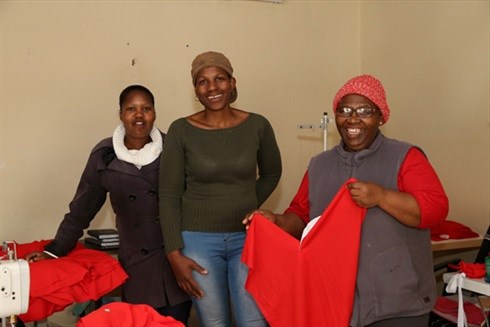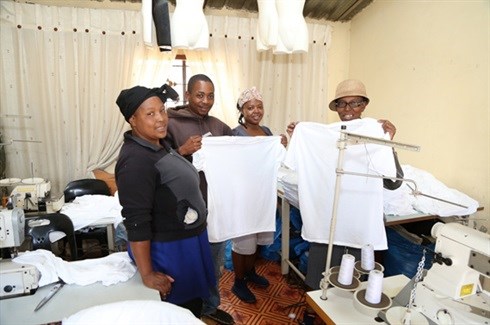
Top stories






More news


Marketing & Media
Ads are coming to AI. Does that really have to be such a bad thing?














According to Mark Gogarty, MD Mace Promotions, "The manufacturing of clothing and textiles in South Africa has experienced a significant decline in the last 10-15 years. This is as a direct result of persisting challenges, including; high tariffs on imported fabrics, access to the right equipment and supporting utilities infrastructure - such as power - and labour related issues.
"Together these challenges have prevented the local industry from keeping up with competing markets for outsourced manufacturing, including China, India and even Mauritius. Additionally, more recently, muted performance in the country's broader economy has impeded local manufacturing industries from growing, where in fact there have been significant losses in jobs and revenue."
Declining industry
To put this into context; in 2013, the Clothing, Textiles, Footwear and Leather (CTFL) industry made up about 14% of the existing jobs in South Africa's manufacturing industry - an estimated 80,000 jobs, which was down from 181,000 jobs in 2002. Additionally, in 2014 South Africa imported R11.9 billion worth of clothing in manufactured textiles, including approximately 30 million manufactured t-shirts.
"If we consider that for every 6,000 t-shirts ordered from Mace, at least one sustainable job is created. Therefore to manufacture 10 million t-shirts locally the opportunity is there to create approximately 2,000 jobs."
In support of this and the bigger picture for the industry, the dti made significant inroads with the introduction of the New Growth Path Local Procurement Accord (LPA) that was signed in 2012. Directed at not only making South Africa a keen competitor globally in textile manufacturing, but leveraging on opportunities to grow this industry and, in so doing, to create more skilled jobs and contribute to the local economy.
The LPA aims to mobilise the private sector, organised labour, communities and government in a strong partnership to promote local procurement in South Africa as a platform for creating five million new jobs by 2020.
Putting the LPA to work, to date Mace Promotions has established three co-operation partnerships within the Ekurhuleni area that has seen the company outsource all of its promotional textile manufacturing on behalf of their clients to community based manufacturing operations, thus creating sustainable employment opportunities within the textile value chain where communities can be uplifted from within.

Gogarty says, "The co-operations sites have been established within low cost areas, in fact, the newest co-operation that we established three weeks ago operates out of a RDP house in Buhle Park, where Hilda Matlabe has a productive team of four fulltime employees who are working towards producing 500-700 t-shirts a week."
Seipati Mohale is the homeowner where her co-operation was established 10 months ago and, while currently she has two fulltime and one part time staff members, she is keen to fill their capacity to five employees. She believes this will also see the team increase their productivity and potential outputs and to be able to take on more orders.
The co-operations that Mace Promotions has helped establish are in the process of fulfilling orders for Vodacom, one of the company's key clients who encouraged Mace from the start to develop this initiative.
"In April we showcased these co-operations to Vodacom, as we wanted to show them where their t-shirts and golf shirts are being made and the benefits of these co-operations at grassroots in the community. Following this, our plan is to continue to develop this initiative further in our efforts to create many more sustainable jobs," concludes Gogarty.